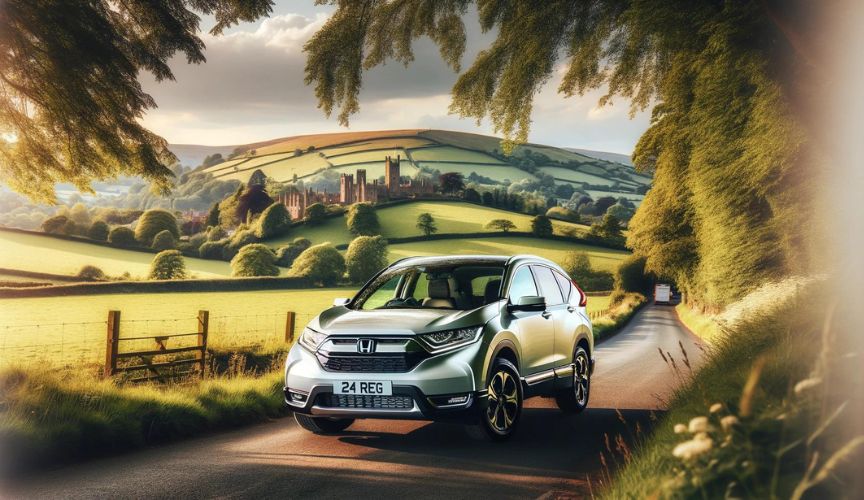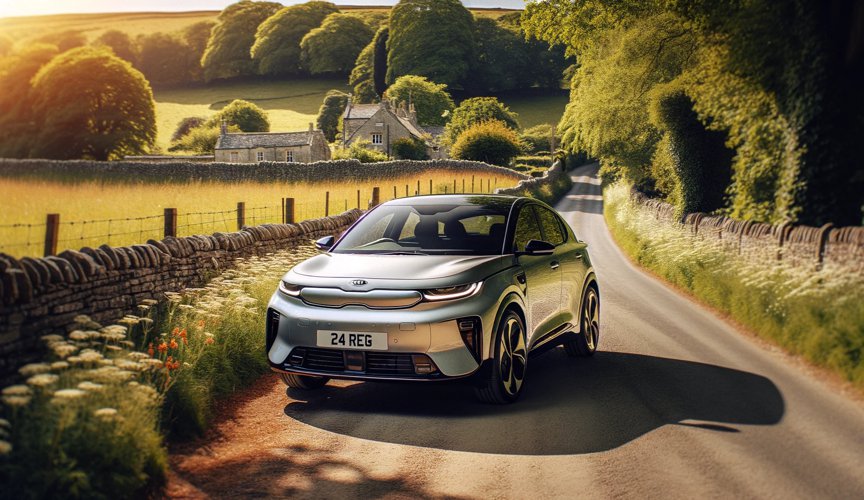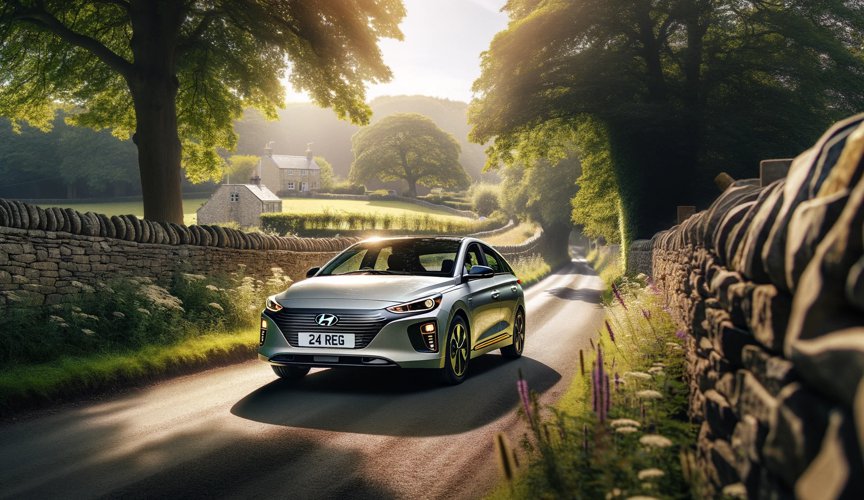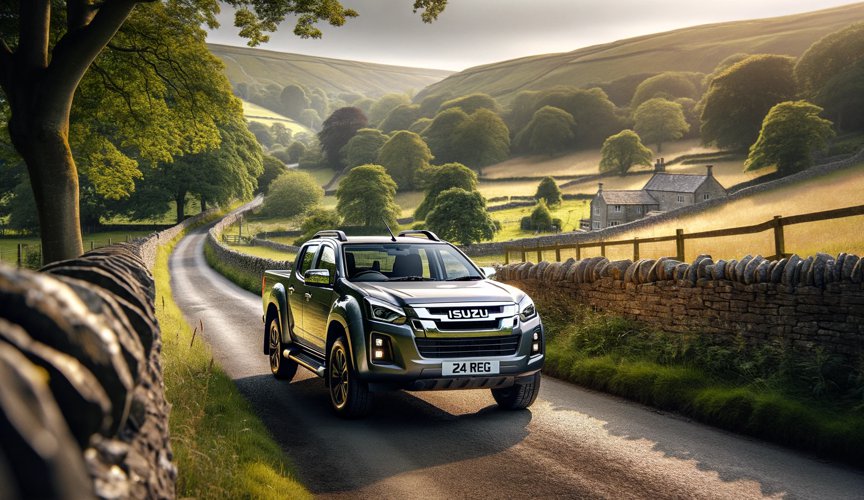https://www.jthughes.co.uk/Blog/View/What-are-the-car-number-plates-for-2024/12660
What are the car number plates for 2024?

Every vehicle has its own registration number, made up of letters and numbers, shown on a 'number plate' on the front and back of the vehicle.
It's a must-have for driving on UK roads, and it can also tell you a bit about the car.
This article covers what you need to know about registration numbers and introduces the new plate numbers for 2024.
Why your car needs a unique registration number.

Your car's registration number acts as its unique identifier, distinguishing it from every other vehicle on the road.
This unique combination of letters and numbers is solely assigned to your car, facilitating its identification.
The information associated with your car's registration is vital for administrative tasks such as taxation, insurance, or when you decide to sell it.
Moreover, it enables law enforcement to track down vehicles involved in illegal activities or traffic violations.
Furthermore, this identifier proves invaluable in everyday scenarios, such as locating your car in a car park filled with vehicles of similar makes and models.
Ads by JT Hughes
Scroll to continue with content
Can a registration number reveal the car's keeper?

When a car is brand-new, the Driving and Vehicle Licensing Agency (DVLA) assigns registration numbers to it.
The registration connects the car to its 'keeper"—a term the DVLA uses instead of 'owner', which can refer to either an individual or a company.
When purchasing a car, it's required to inform the DVLA about the change in 'keepership' from the previous owner to yourself.
This change is then linked to the car's registration. As a result, you're recognised as the car's'registered keeper'.
Essential aspects like insurance, MOT tests, breakdown services, and maintenance are all associated with the car's registration as well.
Decoding a registration number.

A registration number consists of a distinctive mix of letters and digits. Over time, various formats have been employed, but the current standard is a sequence of two letters, followed by two digits, and then three letters. For instance: AA23 YYY
The initial two letters represent an area code linked to the DVLA office where the vehicle was first registered, with each office assigned multiple codes. For instance, 'AA' is associated with Peterborough.
The subsequent two digits indicate the vehicle's initial registration period. The '23' signifies that the car was registered between March 1 and August 31, 2023.
The last three letters are chosen at random, serving to differentiate the vehicle from others with the initial 'AA 23' sequence.
Introduced in 2001, this format was designed to increase the possible combinations of letters and numbers beyond what previous formats could offer.
Understanding the changes in registration plate numbers in 2024.

The sequence used in registration numbers, specifically the date code (for instance, '23' in AA23 YYY), updates biannually, on March 1st and September 1st.
In 2023, this code shifted to '23' in March, reflecting the year, and to '73' in September, which represents the year plus 50. For the year 2024, the codes will be '24' starting in March and '74' beginning in September.
This system commenced on September 1, 2001, with the code '51' and is slated to conclude on August 31, 2050, with the code '50'. After this date, a new format, yet to be announced, will take its place.
The introduction of new registration codes often generates excitement, dubbed 'reg change day'.
Many car enthusiasts who want to own a vehicle with the most recent date code are looking forward to this time.
Concurrently, JT Hughes will roll out some incredible offers across their entire range of Honda, Kia, Hyundai, KGM, Isuzu, and INEOS Grenadier vehicles, marking a perfect opportunity for buyers to secure a great deal.
The rules for car number plates.
UK law mandates that most vehicles, including cars, must display a number plate with their registration number at both the front and rear.
However, certain vehicles, like tractors and motorcycles, are only required to have one plate, positioned at the rear.
There are detailed regulations regarding the size, colour, reflectiveness, and character spacing on number plates.
Additional rules include prohibitions against obstructing the plate's visibility, for example, with a bike rack or trailer. Altering the plate's appearance with stickers or tape is not allowed.
The plate must remain clean and intact, and the lighting for the rear number plate must be functional.
Non-compliance with these standards can result in your vehicle failing its MOT. Moreover, the police have the authority to issue fines and potentially seize vehicles that violate these guidelines.
Replacing your number plate.
Replacing a damaged number plate is straightforward. You can find new plates at most retail outlets that sell car parts and through numerous online retailers.
There's some necessary paperwork involved. Whether purchasing your plate in a store or online, the seller must see a form of personal identification (such as a driving license or passport) and evidence proving you're legally entitled to the registration number.
This proof could be your V5C document or, for leased vehicles, a letter of authorisation from the leasing company that mentions the document reference number from the V5C.
Private registrations?
Private registration numbers provide a way to stand out for your car with a number that is more distinctive or significant than the one the DVLA initially issued.
There's a vast selection available directly from the DVLA, through specialist auctions, and from dealers.
If you're unable to find one that suits your taste, the DVLA can issue a custom registration number, provided the letters and digits adhere to certain format guidelines and don't spell out anything offensive.
Additionally, the chosen combination cannot make the vehicle seem newer than its actual manufacture date.
Prices for these unique identifiers can range significantly, starting from around £30 to reaching into the hundreds of thousands for particularly sought-after numbers.
After purchasing a private registration, you'll need to contact the DVLA to have it assigned to your vehicle.
Should you decide to sell the car later, it's important to inform the DVLA so they can revert the vehicle to its original registration and allow you to transfer your private number to a new car.
Great used offers at JT Hughes.
Discover unbeatable deals on quality used cars at JT Hughes. Our inventory spans across an extensive range of brands, including Honda, Kia, Hyundai, Ssangyong, Isuzu, and INEOS Grenadier, ensuring you find the perfect match for your preferences.
Whether you opt to purchase or finance, you can easily do so online or visit us at our dealerships located in Shrewsbury, Telford, or Newtown, Powys, in Mid-Wales.
Choose the convenience of home delivery or pick up your new vehicle directly from your closest JT Hughes showroom.
Our selection is continuously refreshed with new additions, ensuring you have the latest choices.
If you haven't found the ideal used car today, we will update you with our stock alerts to be the first in line when your preferred make and model become available.
At JT Hughes, we streamline both the buying and selling process.
Selling your car? Get an instant online valuation that we'll guarantee for seven days, making your experience hassle-free. (Terms & Conditions Apply)